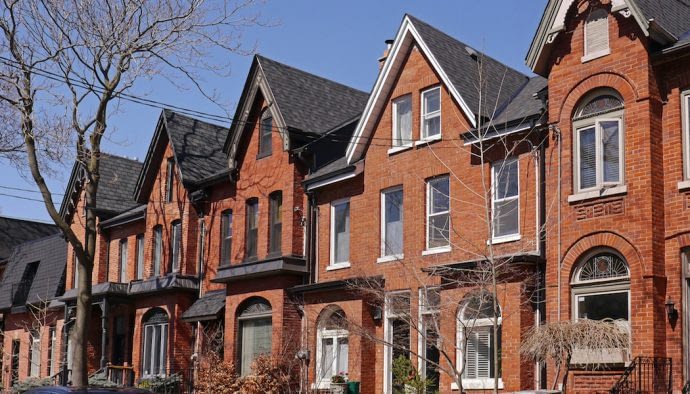Spring is a great time to give your kitchen a thorough cleaning. Over time, dirt, grime, and clutter can accumulate in your kitchen, making it unhygienic and disorganized. Spring cleaning your kitchen can help you eliminate unwanted items, deep clean surfaces, and create a more functional and enjoyable space for cooking and entertaining.
A clean and organized kitchen has many benefits. It can reduce stress, save time, and make cooking and entertaining more enjoyable. A clutter-free kitchen can also inspire healthy eating habits and make it easier to prepare nutritious meals.
Spring cleaning your kitchen involves decluttering, deep cleaning, organizing, and maintaining the space. We will walk you through these steps in detail to help you achieve a sparkling clean, and organized kitchen.

Why Decluttering is Important
Decluttering your kitchen can make navigating, reducing stress, and increasing productivity easier. It can also help you identify no longer useful or needed items, making room for more functional and necessary items.
Tips for Decluttering
Start by setting a goal and creating a plan. Inventory everything in your kitchen and categorize items into keep, donate/sell, or toss piles. Be ruthless in your decision-making process, and consider donating or selling items in good condition that no longer serve a purpose in your kitchen.
Items to Declutter
Common items needing decluttering in your kitchen include expired or unused food, duplicate kitchen tools and appliances, old dishware and utensils, and unused or broken gadgets. Get rid of anything taking up space without adding value to your kitchen.
Deep Cleaning Your Toronto Kitchen
Deep cleaning your kitchen involves cleaning every surface, nook, and cranny. Start by removing everything from your kitchen, including appliances and furniture, and clean from top to bottom. Dust the ceiling, walls, and light fixtures, and then clean the countertops, cabinets, and drawers. Clean the appliances, sink, and fixtures, then mop or vacuum the floors.
Essential Cleaning Products to Use
The right cleaning products can make cleaning your kitchen easier and more effective. Stock up on all-purpose cleaners, glass cleaners, stainless steel cleaners, oven cleaners, and floor cleaners. Microfiber cloths, sponges, and a scrub brush are also helpful tools.
Tips for Tackling Tough Cleaning Challenges
Tough cleaning challenges in the kitchen may include removing burnt-on food from pots and pans, removing stubborn stains on countertops, or removing grease from the stove. Try using baking soda and vinegar to clean these tough spots, or consider hiring a professional cleaning service to help you get your kitchen sparkling clean.

Organizing Your Toronto Kitchen
An organized kitchen can help you save time, reduce stress, and make cooking and entertaining more enjoyable. It can also improve the functionality of your kitchen by making it easier to access and use the items you need.
Tips for Organizing the Kitchen
Start by categorizing items and designating a specific storage space for each category. Store frequently used items in easy-to-reach places and less frequently used items in more out-of-the-way spaces. Use drawer dividers, cabinet organizers, and shelf risers to maximize storage space and keep items easily accessible.
How to Create Storage Solutions for Small Spaces
Small kitchens can present unique challenges when it comes to organization. Consider using vertical storage solutions, such as hanging pots and pans from a ceiling rack or installing shelves above cabinets. Use under-the-counter storage, such as pull-out drawers or baskets, to maximize space. Consider using multi-functional items, such as a cutting board that doubles as a storage container or a kitchen island with built-in storage.
Maintaining Your Toronto Kitchen
Maintaining a clean and organized kitchen requires a few strategies, such as creating a cleaning schedule, doing dishes immediately after use, and staying on top of clutter. It’s also important to regularly review your kitchen’s organization to ensure it continues to meet your needs.
Daily, Weekly, and Monthly Maintenance Tasks
Daily maintenance tasks include wiping down counters, doing dishes, and sweeping or vacuuming the floor. Weekly tasks may include cleaning appliances, wiping cabinets, and deep cleaning the sink. Monthly tasks may include cleaning the oven, wiping light fixtures, and cleaning the refrigerator.

Tips for Getting the Whole Family Involved in Kitchen Maintenance
Involving the whole family in kitchen maintenance can make it easier and more fun. Assign tasks to each family member, create a cleaning chart with checklists and due dates, and reward yourselves for completing tasks on time. Encourage everyone to take pride in the cleanliness and organization of the kitchen and make it a fun family activity.
Find Professionals to Help You Achieve Your Spring Dream Kitchen
If you need professional help with deep cleaning, organizing, or renovating your kitchen, consider checking out Souqh’s marketplace. Souqh is an online marketplace that connects homeowners with trusted and reliable service providers.
Whether you need a professional cleaning service to help with your deep cleaning needs, an organizer to help you get your kitchen in order, or a home renovation expert to help you transform your kitchen, Souqh can help you find the right service provider for your needs.
Souqh provides homeowners with an easy and streamlined process to find the right professional for their real estate and home improvement needs. This includes browsing quotes and vendor profiles, selecting the most suitable match, scheduling the service, signing documents, and making payments upon job completion. Homeowners can also leave ratings and reviews to help others in their community make informed decisions.
Visit Souqh’s website today to browse service providers in your area and read reviews from past customers. With Souqh, achieving your dream kitchen has never been easier.
Join Souqh.ca to book a service and get started.













